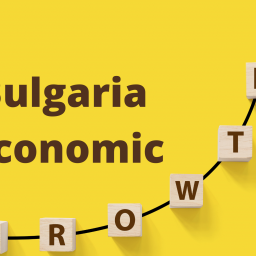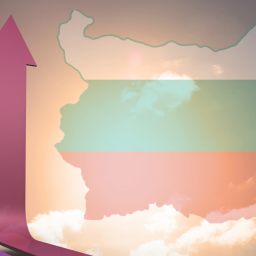
The World Bank is projecting 2.2 per cent economic growth in Bulgaria in 2024, an increase of 0.1 percentage points compared with its forecast in June, according to the Bank’s Europe and Central Asia Economic Update, released on October 17.
The update forecasts 2.8 per cent economic growth in Bulgaria in 2025, a reduction of 0.3 per cent compared with the World Bank’s forecast in June.
The report forecasts 2.7 per cent economic growth in Bulgaria in 2026.
According to the World Bank, economic growth in the developing economies of the Europe and Central Asia region is stabilizing after a series of crises but at levels well below the early-2000s.
Regional growth is expected to moderate to 3.3 per cent this year from 3.5 per cent in 2023, slowing further to 2.6 per cent in 2025.
This is significantly weaker than the 5.1 per cent average growth of 2000-09 and below what is needed for the region’s middle-income countries to achieve their aspiration of attaining high-income status within a generation or two, the update said.
Lower inflation is prompting some central banks to start cutting policy rates this year. Policy caution prevails, however, amid concerns about persistent price pressure, the World Bank said.
Currently, economic growth in the developing economies of Europe and Central Asia is underpinned by private consumption because of rising wages, government transfers to households, and falling inflation.
Remittance inflows are also above pre-pandemic levels, and they continue to support economic expansion in the Western Balkans, the South Caucasus, and Central Asia.
Tourism is another bright spot in the region’s growth story, with international tourist arrivals surpassing pre-pandemic levels, the World Bank said.
Türkiye saw almost 30 per cent more tourist arrivals during the first half of this year compared to the same period in 2018 and 2019. Recovery in goods exports, however, has faded due to the slowdown in the European Union.
In Ukraine, substantial damage from Russia’s invasion and extensive electricity disruptions are likely to slow growth from 5.3 per cent last year to 3.2 per cent this year and 2 per cent in 2025, the World Bank said.
In Russia, tighter monetary policy and increasingly binding constraints on production capacity and labor resources are expected to slow growth from 3.6 per cent in 2023 to 3.2 per cent this year and 1.6 per cent in 2025.
Source: https://sofiaglobe.com/
















